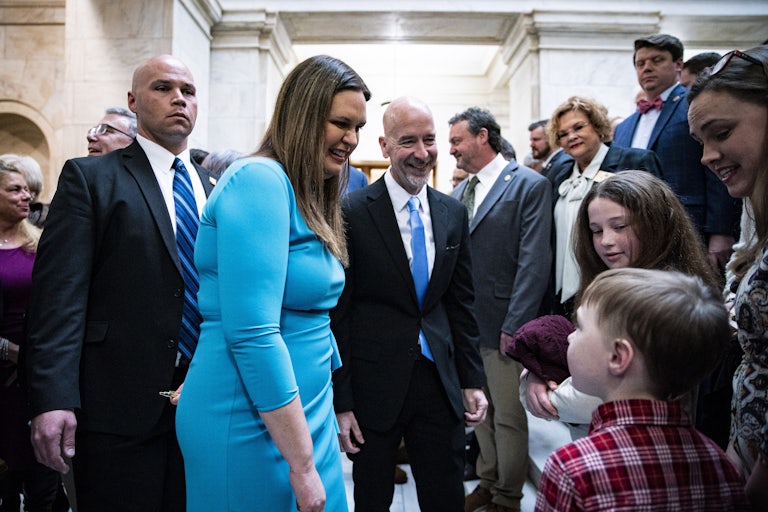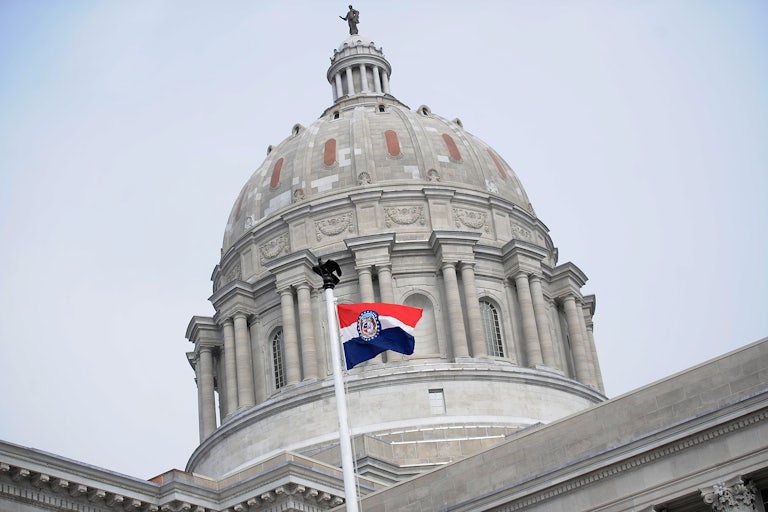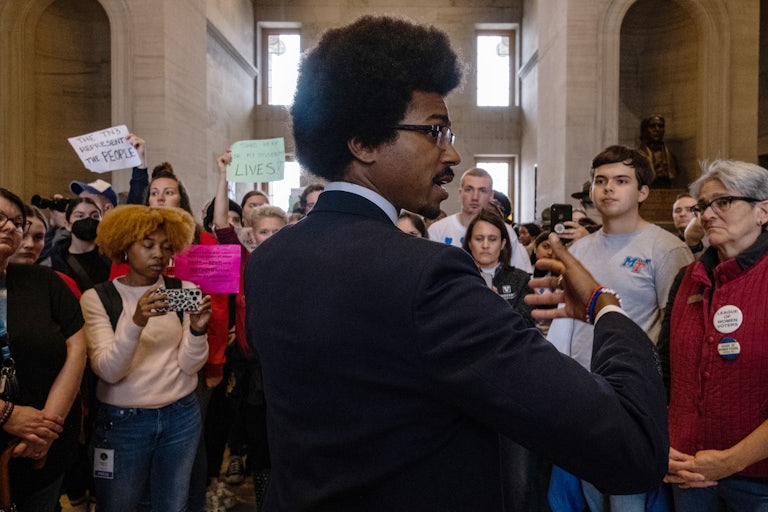Arkansas’s New Law to Save Kids From Social Media Doesn’t Apply to Most Social Media
The law technically makes it illegal for minors to use social media without parental consent, but there are a few big exceptions.

Sarah Huckabee Sanders just made it illegal for anyone in Arkansas under the age of 18 to use social media without consent from their parents. Except, it seems a lot of apps, like TikTok and Snapchat, are exempt.
The Arkansas governor signed the so-called Social Media Safety Act on Wednesday, amid her larger push to “save the children,” marked, for instance, by her bill making child labor easier.
“A social media company shall not permit an Arkansas user who is a minor to be an account holder on the social media company’s social media platform unless the minor has the express consent of a parent or legal guardian,” the bill reads.
Under the bill, which takes effect in September, all users of a social media app must verify their age by submitting a “digitized” form of identification, like a driver’s license, to the company. If they are proven to be a minor, the company must confirm that the minor has a guardian’s consent.
If the company in question fails to perform proper age verification processes, they would be liable to a $2,500 fee per violation, plus any court costs or attorney’s fees and damages brought by the user and their family if they chose to pursue legal action.
It’s tough talk for a bill that doesn’t actually hold many companies to account, or seek to meaningfully improve young people’s relationship with the online world. Because while it’s difficult to imagine how exactly the bill would be enforced, what’s more difficult is to understand which companies will even be impacted.
The bill has numerous carve outs. Companies that offer “subscription content in which users follow or subscribe unilaterally” or “interacting gaming, virtual gaming, or an online service” (like Twitch or OnlyFans) are excluded. Companies that allow “a user to generate short video clips of dancing, voice overs, or other acts of entertainment” (like TikTok) are excluded. Companies that consist mainly of direct exchanges of messages, photos, or videos (like Snapchat) are exempted. And companies that offer services for K-12 schools or career development services to individuals (like LinkedIn) are excluded.
Moreover, the bill excludes companies that have generated less than $100 million, which would include any number of smaller websites, including far-right platforms like Parler and Truth Social.
Instagram, Facebook, and Twitter appear to be the most prominent websites seemingly not touched by the various exclusions. How exactly the state will work with these companies on an individual basis to set an identity verification process in motion is unclear.
There should be a concerted effort and intentional conversation surrounding the online world and our engagement with it—especially among young people. But Arkansas’s bill is mainly concerned with dictating what websites people under 18 can use without parental consent; there is little attempt to better people’s relationships with the internet more broadly.
In this way, the bill is almost a perfect embodiment of conservative governance: purporting to “empower” personal choice of children and families by instead limiting civil liberties—and then offering no material support to help either with, or after, that “personal choice.”








